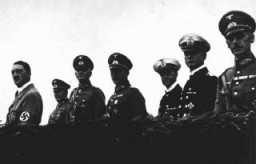You searched for: Diseases in camps
<< Previous | Displaying results 91-100 of 115 for "Diseases in camps" | Next >>
-
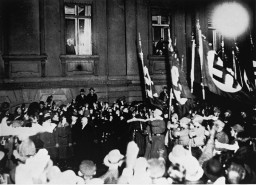
-
Anti-Jewish Legislation in North Africa
ArticleThe Vichy regime introduced race laws to the North African territories in October of 1940. Learn about the impact of the laws on the region’s Jewish people.
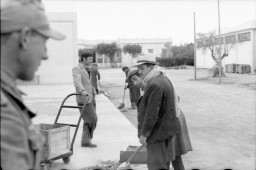
-
“Give Me Your Children”: Voices from the Lodz Ghetto
ArticleThe Jewish children of Lodz suffered harsh conditions after the German invasion of Poland. Read excerpts from diaries where they recorded their experiences.
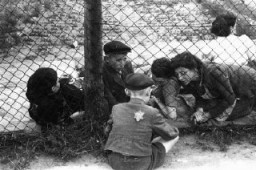
-
Sam Spiegel
ID CardSam was the eldest of five children born to Jewish parents in Kozienice, a town in east central Poland. His father owned a shoe factory and his mother cared for the children and the home. Kozienice had a thriving Jewish community that made up about half of the town's population. 1933–39: On September 1, 1939, German troops invaded Poland. That morning the Spiegels heard an air raid siren blaring and quickly left their house. Fifteen minutes later a bomb struck the building. Sam was just 17 years old.…
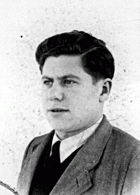
-
Idzia Pienknawiesz
ID CardIdzia was the older of two girls born to Jewish parents who lived 35 miles east of Warsaw in the small predominantly Jewish town of Kaluszyn. Idzia's father owned a liquor store and her mother was a housewife. Idzia was close friends with a group of Jewish teenagers who went to the same public school and spent much of their free time and vacations together. 1933-39: Normally, Idzia goes out with her friends on pleasant summer evenings. They like to stroll down the main street together and visit the sweets…
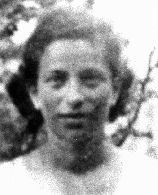
-
Settchen Oppenheimer
ID CardSettchen was one of three children born to a religious Jewish family in a small town in the German state of Hessen. Her father was a cantor and kosher butcher. Settchen completed grade school during the 1880s. Because of a digestive disease, Settchen was largely homebound. She never married, and lived with her younger sister and brother-in-law. 1933-39: Reichenbach was a quiet town. Its largely Protestant inhabitants were generally not antisemitic. After Hitler came to power in 1933, the Nazis staged…
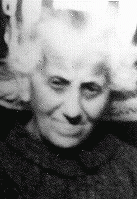
-
Berta Koselova Krakauerova
ID CardBerta was born to a Jewish family. Orphaned when she was a child, she was raised by her Uncle Poldi in Vienna. In 1899 she married Bernard Krakauer, a Jewish businessman from her hometown of Mikulov. As was the custom for orphans, Berta wore a black dress at her wedding. The couple settled in the town of Hodonin, where Bernard opened a dry goods and clothing store. They raised six children. 1933-39: With their children grown, Berta's husband retired in 1938. He sold the business and moved with Berta and…
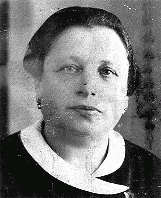
-
Moishe Rafilovich
ID CardMoishe was one of three sons born to Yiddish-speaking Jewish parents in Radom. This industrial city was known for its armaments factories, in which Jews were not allowed to work even though they totaled more than one-fourth of the city's population. When Moishe was young, he left school to apprentice as a women's tailor and eventually became a licensed tailor. He also played soccer for a local team. 1933-39: In 1937 Moishe, by then a master tailor, married another tailor's daughter. The couple had two…
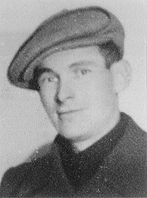
-
Wallace Witkowski describes harsh living conditions for non-Jews in Poland
Oral HistoryWallace and his family were Polish Catholics. His father was a chemical engineer and his mother a teacher. The Germans occupied Kielce in 1939. Wallace witnessed pogroms against Jews in 1942. Wallace was active in the anti-Nazi resistance, acting as a courier between partisan groups. In 1946, in liberated Poland, Wallace witnessed the Kielce pogrom. He was reunited with his father in the United States in 1949; other family members followed. The Communist regime in Poland, however, denied his only sister…
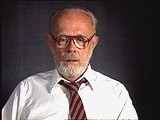
-
German Armed Forces High Command
ArticleThe German Armed Forces High Command, headed by Hitler, directed Germany’s armed forces before and during WWII. It was deeply complicit in the Holocaust and other crimes of the Third Reich.
